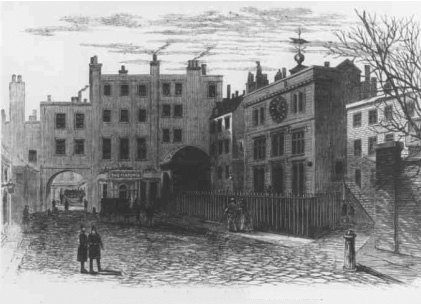Reading Peter Edwards, Delusion: The True Story of Victorian Superspy Henri Le Caron, Toronto, Ontario: 2008: a review

Delusions, revulsion and reputations
Peter Edwards, Delusion: The True Sory of Victorian Superspy Henri Le Caron, Toronto, Ontario: Key Porter Books, 2008. ISBN-10: 1552639673
...
There are several plots going on in and around this book simultaneously. Spying has at least something to do with deceit, and reproducing puported facts about a series of deceits in a number of jurisdictions over a period of decades during the 19th century does leave me wondering how accurate the presentation of some of the finer, purported details of such activity can really be. This said, Peter Edwards seems to have accomplished a fine, and scrupulously fair, task in writing this popular, journalistic history of a superspy.
The spymaster was Sir Robert Anderson (1841-1919). A lawyer from an Irish family of Presbyterian convictions, he became an accomplished pursuer and antagonist of Fenians and Irish nationalists. Stationed first at Dublin Castle and then at London's Scotland Yard as head of the Criminal Investigation Division (1), he pursued known and suspected Irish subsersives with a rigour not unusual in Irish-born Protestants strongly assertive of their British identity. Known also as a Bible student and author of several books on Bible study and prophecy which are still read and in print, he was for part of his life associated with independent, undemominational local churches, returning eventually to the Presbyterianism of his family background.
The spy was Henri Le Caron (1841-1894). Or Thomas Beach. Or other names besides. A spy with a sideline as a medical doctor: fairly stated, since spying was his driving passion, rather than medicine, and because at some stages of his life he found grave-robbing more lucrative than medicine. One cannot escape the conclusion that Henri Le Caron was a man whose character was at least to some extent disreputable and motivated by greed.
Patriotism has sometimes been described as the scoundrel's last refuge, the patriotic sentiment in Le Caron's case being, of course, British. So the fact that Henri Le Caron did the (British) state some service might in the view of some Britons endow his reputation with a certain retrospective catharsis. He was undoubtedly brave and may have saved lives as a result of his spying over the course of about 25 years.
The fact also that, in pursuit of one of his other careers, Le Caron made money out of activities such as stealing the body of US President Benjamin Harrison's father would also make him a permanent pariah in the eyes of other people. I must confess that my own sense of revulsion at this aspect of Le Caron's activities never left me in the course of my reading of this book.
Because, frankly, the subjective impressions gained in the reading of a book such as this may be as significant as those facts and ideas rationally absorbed.
Reading about the activities of this spy and his spymaster, do I really hear the latent strumming of a famous, minor key theme tune associated with Ian Feming's 007 character? There is in any case little that is glamorous about Henri Le Caron. As a character he certainly evokes no angelic choruses.
But, in my reading, I do seem to receive a few premonitory echoes of Markus Wolf (1923-2006), East Germany's highly successful spymaster, when I see details of the espionage aspect of Sir Robert Anderson's many talents. Both men were notoriously tight-lipped about the personal relationships which they maintained with their long-term, well-placed spies; both men succeeded in reaping results over decades as a result of painstaking and patient cultivation of their sources. Both could present an urbane, cultivated front, and yet there was always more to them than met the eye, so to speak. Sir Robert Anderson was not, however, personally identified with Markus Wolf's 'honey trap' methods, although Sir Robert's boss at Scotland Yard, Edward Jenkinson, did indeed use such tactics (2).
'Honey trap' tactics were also favoured and actively pursued by Le Caron's Canadian handler, Judge Gilbert McMicken, appointed spychief by Sir John A. Macdonald in the new Dominion. Peter Edwards' book describes how Canada's spychief travelled to Baltimore, Maryland with the purpose of attempting to organize the entrapment of Irish dissidents through the enlisting of the favours of women spies deemed suitable for this purpose (3). (Here, one is reminded of aspects of G. Gordon Liddy's dubious Gemstone plan in 1972, prior to the Watergate burglary.)
Another of Sir Robert Anderson's spies among Irish radicals was Francis Millen. Peter Edwards shows how successful he was in maintaining confidences in that Henri Le Caron never knew that his ostensible fellow-Fenian was, like himself, also an infiltrated Britsh spy in their ranks, in the pay of Sir Robert.
Somewhat beyond the pale of Sir Robert Anderson's active empathies, however, were the affairs of Manitoba. Interestingly, when Fenians attacked Pembina, on the US-Manitoba border in October 1871, this was in the context of their efforts to make alliance with Louis Riel's Union nationale métisse, but this did not come to fruition. This makes for a fascinating sub-plot to Peter Edwards' book (4).
There were those who thought that Sir Robert Anderson could usefully have organized his time to spend maybe less of it on espionage and more of it trying to catch Jack the Ripper (this shadowy criminal's nefarious activities coincided with Sir Robert's time heading CID). A measured judgment on this is difficult when one is now far removed from the period in question. The word 'Delusion' in the title of the book refers to dynamite, a preferred weapon of Fenians, and notably in the jail breakout at Clerkenwell in 1868. This, and other events such as the assassination of Irish Secretary Sir Henry Cavendish in 1882, produced significant public disquiet, bringing Scotland Yard's efforts in tracking down Fenians into sharper focus.
It is ultimately unclear also whether Sir Robert Anderson should be described simply as leading successful criminal efforts against Fenians — which he certainly was — or whether he himself was also being led by his spies. Certainly the furnace of Irish politics never released its grip on Sir Robert Anderson. He was later criticized for having crossed the boundary of political impartiality expected of civil servants, and of having used his contacts and knowledge of Fenian affairs across jurisdictions for the political purpose of discrediting the Irish Parliamentary Party. Sir Robert was indeed the author of an article with such a purpose published anonymously in The Times (right described by Peter Edwards as an unofficial branch of the Establishment). Indeed, The Times was also the cause of the judicial enquiry into Charles Stewart Parnell, when it printed — it transpired, against the advice of its own legal counsel — certain extracts from documents. These seemed to suggest that Parnell supported Fenian terrorism, and were later proven to be forgeries. The Times also provided Le Caron with monetary incentive to leave his spying and medical (and grave-robbing?) careers.
Freunde sterben nicht, as Markus Wolf famously said (5), and after their respective retirements, Sir Robert Anderson and his former spy remained in regular contact, Sir Robert from time to time offering Le Caron his views on the New Testament and Le Caron, in turn, asking Sir Robert for more money.
March 21, 2013
Notes
(1) 'Criminal Investigation Division' is often abbreviated 'CID' in literature from the British Isles. The question may be anticipated: are senior police officers, with their methodology aiming at criminal conviction, really the best placed people to handle the information gathering aspects of foreign espionage? Admittedly, then, the spymaster career of Sir Robert Anderson does presage a 20th century debate among (for example) J. Edgar Hoover's FBI on the one hand and William Donovan's OSS and its CIA successor on the other. This narrative has by no means ended; similar comments could be made about intelligence gathering variously by Canada's RCMP and CSIS.
(2) Edwards, op. cit, p. 191.
(3) Edwards, op. cit., p. p. 63, 64. Thus, also, when, during the Irish Treaty talks in 1921 and the Lead-Lease negotiations with the US in World War Two, some male Irish and American delegates found themselves progressively entrapped by the favours of women close to senior Establishment figures, such occurrences simply represented established practice which had long been part of the proconsular and diplomatic apparatus of the British state.
(4) Edwards, op. cit, p. p. 101-106.
(5) Tr. 'Friends do not die', the title also of a work by Markus Wolf: Freunde Sterben Nicht, CD Audio Book, Eulenspiegel, 2003, ISBN 3359010671
MJFenn is an independent writer based in Ontario, Canada.
Other of my reviews may also be of interest
- Reading: General Rick Hillier, A Soldier First, Toronto, Ontario: HarperCollins Publishers, Ltd., 20
- Reading: Arthur Slade, John Diefenbaker: An Appointment with Destiny, Quest, Lantzville, BC: YYZ Pub
- Reading Agatha Christie: Death on the Nile (the earlier work), G. K. Hall & Co., Boston, Mass.,
- Reading: Roderick Stewart, Wilfrid Laurier: A Pledge for Canada, Lantzville, BC: XYZ Pub., 2002: a R
- Reading: John English, The Worldly Years: The Life of Lester Pearson 1949-1972, Toronto: Knopf Canad








